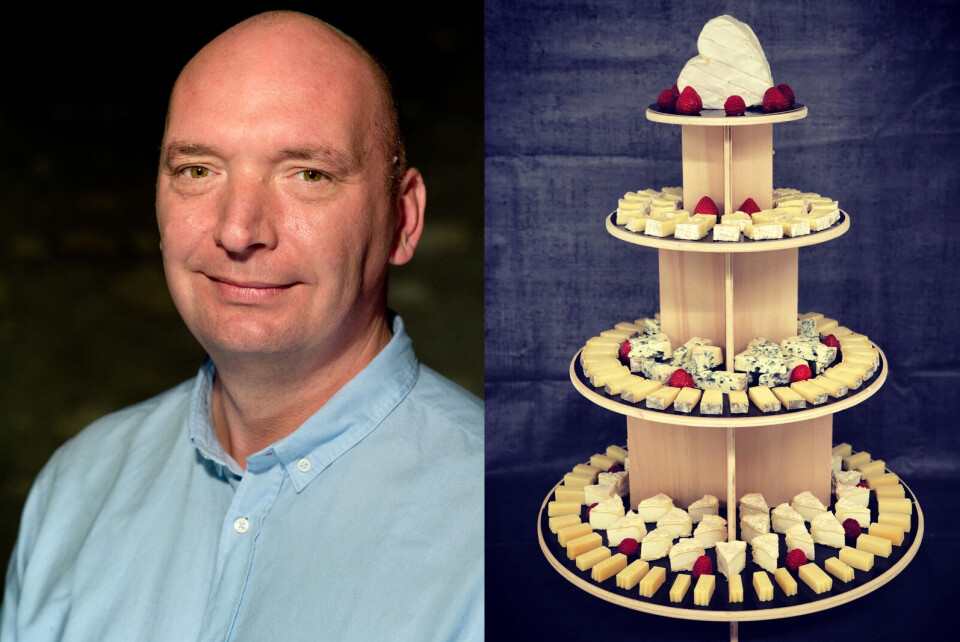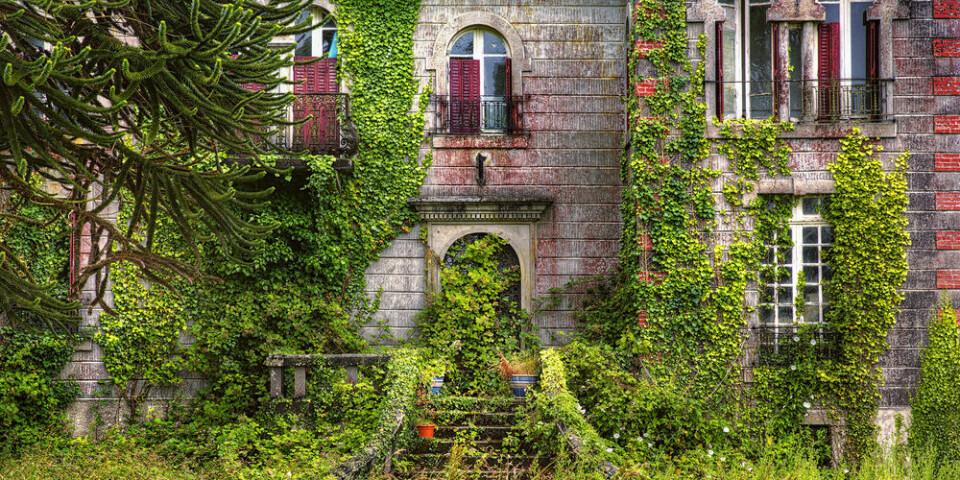-
Supermarket brand products ‘cheaper but less healthy’
Own-brand products can cost up to 30% less than branded items, but are often of poorer quality, a new study claims
-
Prices on these supermarket products will increase by up to 15% in France this year
Some products included beauty, hygiene, and pasta are set to fall in price
-
Which fruits, vegetables and fish are in season in France this March?
March is the time to benefit from end of winter foods, as many seafood dishes go out of season
How I changed career: Banker to cheesemonger in France
Runner up at this year’s World’s Best Cheesemonger Competition in Tours, Grégory Giraudon talks about his career change from finance to fromage

Grégory Giraudon used to be a banker, but at the age of 38, he gave all that up to go back to school to train for a job he is passionate about. He now advises clients on which cheese to buy at his shop and market stall in Royan, Charente-Maritime.
What attracted you to this job?
I have always been an epicurean, as we say in France, enjoying good food and wine. So, after a career in banking, I decided to find a new job in gastronomy, and in particular cheese, because of the history, the traditions and the men and women behind it. I want to be an ambassador of this heritage, unique in the world, and to share my love of this product with my clients.
Was it difficult to become a cheesemonger?
No, because you can sign up, as I did eight years ago, for a course to become qualified as a cheese and dairy salesperson [CQP, Certificat de Qualification Professionnelle Vendeur conseil en crèmerie-fromagerie], in the form of a sandwich course which takes a year and where you learn everything to do with the job; how cheese is made, cut, packaging, sales, presentation of a cheese board, different cheese families, how to make butter… A really complete course.
How do you choose which cheeses to sell?
I look for cheeses with an AOP in French, PDO (Protected Designation of Origin) in English. I also like to find producers I can work with directly to create the type of cheese I want to sell in terms of taste, texture and flavours. I also work with other suppliers for our basic cheese ranges, such as Brie, Roquefort and other classic cheeses.
You worked in London for a while. Did you find the approach to cheese was different?
While I was training, I worked for Paris cheese specialists Androuet. My wife and I wanted to have the experience of living abroad, and as Androuet were looking for a manager in London, I was able to take up the post. The approach towards cheese is completely different in each country. French clients have their own traditions, know exactly what they are looking for and tend to keep to their habits. They buy their cheese for their family, for the week in fairly large portions.
The British client wants to discover new tastes. In the London boutique they had the choice between 50% French cheeses, 30% British and others from the rest of the world.
The British bought more frequently than the French and in smaller portions and asked to try different cheeses they had not tasted before. Their eating habits are different because they eat less cheese at a time, because it is not eaten during a meal, as in France, but perhaps in the evening whilst watching the TV. I adore the British clients. There is a different relationship with them. In Royan, I am organising tasting workshops with a Franco-British association, where we will taste both French and British cheeses.
You entered the World’s Best Cheesemonger Competition in September. What did you have to do?
There are nine tests. They include a theory part with questions on a wide range of topics and a blind testing of four European ODP cheeses where we must state their names, country of origin, milk type, production technique and maturing time. We have to cut different cheeses, have to present a cheese of our choice and prepare a cheese plate, among other tests so there is a lot to do. I entered four years ago, but did not win that time. This time, I knew what to expect, and I worked every day in the months leading up to it. [He was named runner-up for 2021 in Tours].
What is the importance of this competition for you?
To be best cheesemonger is a huge recompense. I entered again because from my first experience I knew where I had failed, and where I had succeeded. And I do like to test myself. It is more a personal challenge than anything else.
What advice do you give on how to choose a good cheese?
It is a matter of individual taste, and we do not all have the same sensitivity. We could both taste the same cheese and I would straightaway notice the salty notes and you the fruity flavours. Everyone has a different approach, coming to the tasting with their own ideas about what they like, and range of experience of cheese. Each tasting is unique.
Are your clients willing to try new cheeses, even though you say the French tend to stick to what they know?
Yes, because they know that is the way we work. We have recently opened a new shop in Royan, as well as our regular market stall, and in the boutique we have cheeses we do not have in the market. That means clients who regularly come to the market know they can make new discoveries if they come to the shop. They know that at least twice a month there will be a new cheese.
Are you constantly on the look-out for new cheeses?
Yes, and what is on offer changes throughout the year because it is a seasonal product evolving throughout the year as the milk changes depending on whether the grass is young or older, whether the cows are inside or outside or whether they have calved recently or not. The summer cheeses from June to October are different from the winter cheeses. So we have to work towards having the right cheeses at the right moment for our clients.
Do you ever get tired of cheese?
No, never. It is a passion. It is a pleasure to explain the cheeses to the client. This morning, I talked to an English supplier, because I am very keen for our French clients to discover British cheese. When I worked in London, I discovered there are some very good UK cheeses. It is important to break the cliché that only France has good cheese. It is like wine and there are good wines from all over the world.
Are there similarities between working in the wine trade and working with cheese?
Yes, because each wine, like each cheese is different depending on the region it comes from, the terroir and the producer. They complement each other. Wine like cheese, develops as it gets older. Both involve similar skills.
Do we, the general public, spend enough time appreciating cheese?
When I hold tasting workshops people are often frightened to try new cheeses. They have already discovered something they like. Wine is the same. A Bordeaux is very good, but there are others. It is the same matching wines with cheese. The classic is red wine, but I prefer white. And that is what I want to show people, that we can break routines to discover something new. Sometimes, clients will come back, after trying one of my suggestions and thank me because they say the experience was amazing, a real treat. That is my greatest reward for the job I do which is my passion.
Related stories
'Patience and creativity' needed to create stonemason art from France
'We are proud to continue the craft of traditional straw brooms'























